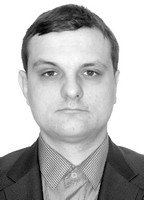Sport-specific diet contribution to mental hygiene of chess player
Фотографии:
ˑ:
Teoriya i praktika fizicheskoy kultury №4 2017, pp.96-98
PhD, Associate Professor A.I. Alifirov1
PhD, Associate Professor I.V. Mikhaylova1
Dr.Hab., Associate Professor A.S. Makhov1
1Russian State Social University, Moscow
The article considers the key nutritional provisions for highly-skilled chess players in the precompetitive training and competitive periods within a yearly meso-cycle and analyses the reasons for the growing demand for the major nutrients and microelements in the competitive period with the relevant loss compensation schemes applicable in the training period.
The study data and analyses demonstrated that special diets and nutrition regimens help the highly-skilled chess players attain the required high standards of bodily functionality in the precompetitive and competitive periods. Individual failures of the highly-skilled chess players in maintaining the required day regimens and diets in a competitive period were found to be of potential detrimental effects on the competitive success rates and associated with mental/ emotional disorders and fatigue that may stay for quite a long time upon completion of the competitions. To speed up the rehabilitation process in the precompetitive training and competitive periods within a yearly meso-cycle, chess players are recommended to prudently combine modest physical training with active recreation and take timely corrective actions in case of sleeping disorders. Comprehensive medical and biological test data (including the integrated blood biochemistry and lipid complex tests; density-metrics; colonoscopic and gastroscopic tests) were used to recommend, in some cases, the players to administer certain medicines from the lists of the Health Ministry of the RF including Tanakan, Essentiale Forte, Omega 3 Forte, Calcium-D3 Nikomed etc.
Keywords: chess players’ training system, mental hygiene factors, nutrition, chess players’ functionality.
References
- Bal'sevich V.K., Zaporozhanov V.A. Fizicheskaya aktivnost cheloveka [Human physical activity]. Kiev: Zdorovje publ., 2007, 324 p.
- Vershinin M.A., Ilchenko N.A. Psikhologo-pedagogicheskie aspekty povysheniya effektivnosti trenirovochnogo protsessa kvalifitsirovannykh shakhmatistov [Psycho-pedagogical aspects of effectivization of training process of skilled players]. Fundamentalnye issledovaniya, 2015, no. 2, pp. 1474-1477.
- Grinchenko V.S., Kasyanov G.I. Novy podkhod k razrabotke produktov pitaniya dlya shakhmatistov [New approach to development of food products for chess players]. Nauchnye trudy KubGTU, 2016, 12, pp. 141-155.
- Karpov A.E. Shakhmaty v nashi dni [Chess today]. Moscow, 2005, 142 p.
- Mikhaylova I.V., Makhov A.S., Alifirov A.I. Shakhmaty kak mnogokomponentny vid adaptivnoy fizicheskoy kultury [Chess as multi-component type of adaptive physical culture]. Teoriya i praktika fizicheskoy kultury, 2015, no. 12, pp. 56-58.



 Журнал "THEORY AND PRACTICE
Журнал "THEORY AND PRACTICE